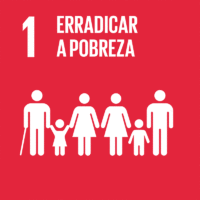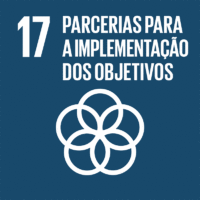Ciência_Iscte
Publicações
Descrição Detalhada da Publicação
Globalization and its Impacts in the Portuguese Society
Web of Science®
Esta publicação não está indexada na Web of Science®
Scopus
Esta publicação não está indexada na Scopus
Google Scholar
Esta publicação não está indexada no Overton
Abstract/Resumo
Since I was very young, I’ve always been interested in questions concerning the world around me, and most particular the human condition. Questions dealing with what we are, where do we come from or where are we heading, have always been a part of my spirit. Thus, this work represents the culmination of several years of incubation and maturation, period where I came to the conclusion that if I intended to answer such intriguing questions, I needed to search, read and study a great deal. In doing so, I found an extremely contemporary phenomenon that gives answers to those interrogations and has direct implications in our daily lives – Globalisation. This dissertation was object of thought, study, investigation, research and subsequently presentation as an attempt to show and give a complete glance over a huge effort, investigation and theorization made in Portugal by a vast number of respected and accredited Portuguese researchers and authors over the issue of globalisation and its impacts in the Portuguese society. Thus, it comprises the international and global context in which Portugal is inserted, as well as, many aspects of the Portuguese society – its economy, poverty, welfare, social policies, employment/unemployment, colonial policy, labour market, migratory movements, European integration, local power, ethnical and national identities. As the elaboration of the dissertation will show, when broaching and analysing such accounts, the mentioning, analysis and criticism of other crucial accounts – namely, the main views and theories from foreign investigators and authors – was also not forgotten. The structure, the chapters and content of this dissertation were carefully thought and chosen in order to give a consistent and complete sight and diagnostic of the Portuguese reality in relation to phenomena such as Europeanization, but, mainly, in relation to globalisation. The work is divided into four distinct chapters, which, at the same time, are well interconnected to each other. In the first chapter, then, entitled “The Processes of Globalisation”, I will concentrate myself in presenting a sort of introduction on the notion of globalisation and its real contours. A special emphasis will be given to the repercussions and subsequent structural changes produced by the globalisation phenomenon. In the second chapter, on the other hand, entitled, “The Dynamics of Migrations in Portugal”, my focus will be on the dynamics of the migratory phenomenon, either in Portugal, either at a global level. The third chapter, entitled, “Social Illness/Risk in a Globalized World”, broaches the social risks produced by the globalisation process itself, with a special reference to the Portuguese conjuncture. Finally, the last chapter – “Conclusion” – represents an attempt to summarize all the ideas and accounts brought up, analysed, discussed and criticized along the dissertation, giving a special highlight to the prospecting and foresighting of future tendencies.
Agradecimentos/Acknowledgements
--
Palavras-chave
Classificação Fields of Science and Technology
- Ciências Políticas - Ciências Sociais
- Ciências da Comunicação - Ciências Sociais
- Outras Ciências Sociais - Ciências Sociais
- Filosofia, Ética e Religião - Humanidades
- Outras Humanidades - Humanidades
Contribuições para os Objetivos do Desenvolvimento Sustentável das Nações Unidas
Com o objetivo de aumentar a investigação direcionada para o cumprimento dos Objetivos do Desenvolvimento Sustentável para 2030 das Nações Unidas, é disponibilizada no Ciência_Iscte a possibilidade de associação, quando aplicável, dos artigos científicos aos Objetivos do Desenvolvimento Sustentável. Estes são os Objetivos do Desenvolvimento Sustentável identificados pelo(s) autor(es) para esta publicação. Para uma informação detalhada dos Objetivos do Desenvolvimento Sustentável, clique aqui.

 English
English




